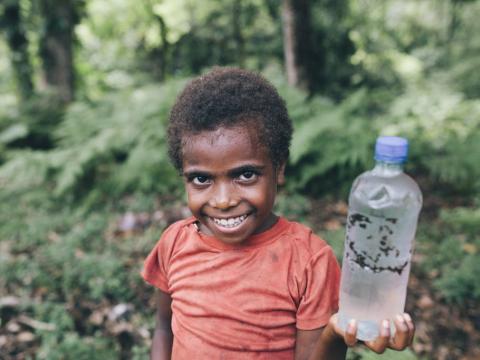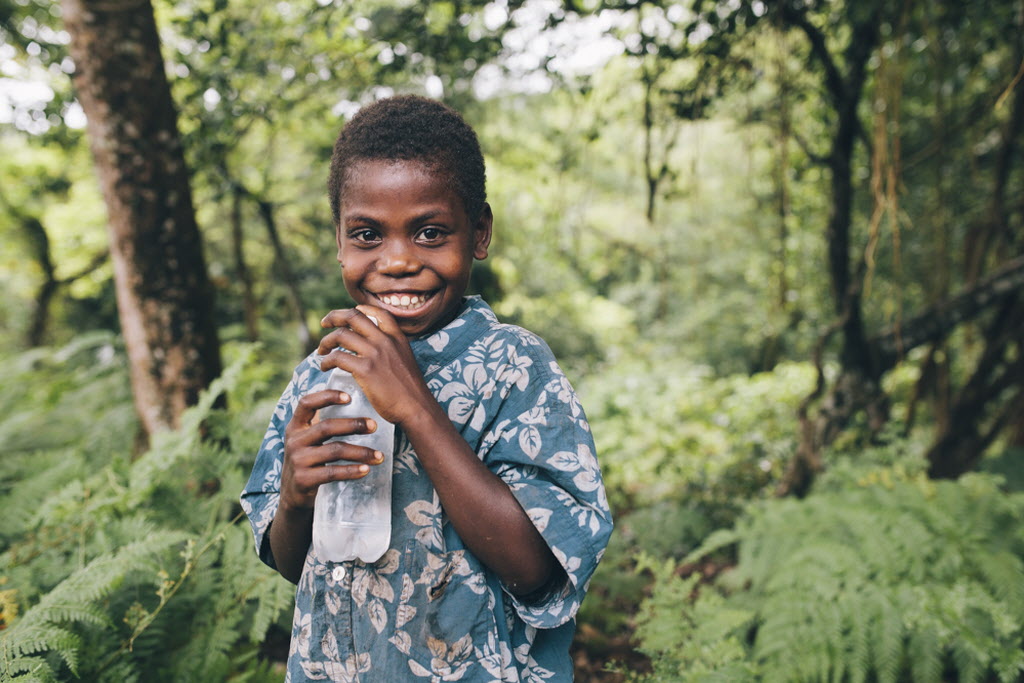Big smiles for clean water in Vanuatu

The postcard pictures of piercing turquoise water, smiling children, and rows of endless coconut trees in Vanuatu fail to do this picturesque country justice. The water is bluer when you’re swimming in it, children are happier when you’re talking to them and coconut trees actually seem more menacing when you’re surrounded by “beware of falling coconut” signs.
But Vanuatu is more than a tourist hotspot just a short three hour flight from Brisbane, Australia. It’s an archipelago of more than 80 islands, with rich culture and history and yes, often voted the happiest country in the world.
It is also a country where 23 percent of children under five are malnourished, only 58 percent of people have access to clean and safe water and sanitation facilities and 50 percent of students drop out of school before high school.
In the happiest country in the world, 60 percent of women have experienced physical/sexual violence at the hands of their husband or partner.
I left my home town of Melbourne for the tropics of Vanuatu almost 10 months ago to work with World Vision Vanuatu. My job here is a Grants and Communications officer which means I get to talk to inspiring staff who live and work in some of the most remote places in Vanuatu, and discuss and see the needs of the vulnerable communities.
My job means that I see the ‘before’ and ‘after’ and I hear stories of the difference World Vision projects are making to thousands of children in Vanuatu. Life-changing differences.
Often families tell me the thing they need most is clean water, which seems incredible when you consider this is a country with a wet season which means it can rain and rain and rain for days.
When I met grandmother Ross Bule, she told me how before World Vision’s water and sanitation project came to her village in Pentecost – a one hour flight north of the capital, Port Vila, and by even the most rural and remote standards, in the middle of nowhere – she had to walk up to three hours a day to get clean water.
When it rained the water would get dirty but she and her family would have no choice to drink it. It meant her grandchildren often became sick with preventable illnesses like diarrhoea. Not anymore! Australian-funded water tanks mean her family has access to clean water in her village and children are no longer getting sick.
When I met Karen, a mother from Tanna – in the country’s south – she told me how her 10-month–old-son Junior is healthier because a World Vision health project funded by the Australian Government/DFAT meant families now understand the importance of nutrition, exclusive breastfeeding and can access antenatal checks.
From all of the communities we work with in Vanuatu, the staff at World Vision Vanuatu, and from me, thank you. You are supporting communities to be healthier, to have greater opportunities to increase their income and access water and education. You are making a big difference to the people of Vanuatu.
About the author | Chloe Morrison is Grants and Communications Officer for World Vision in Vanuatu.
